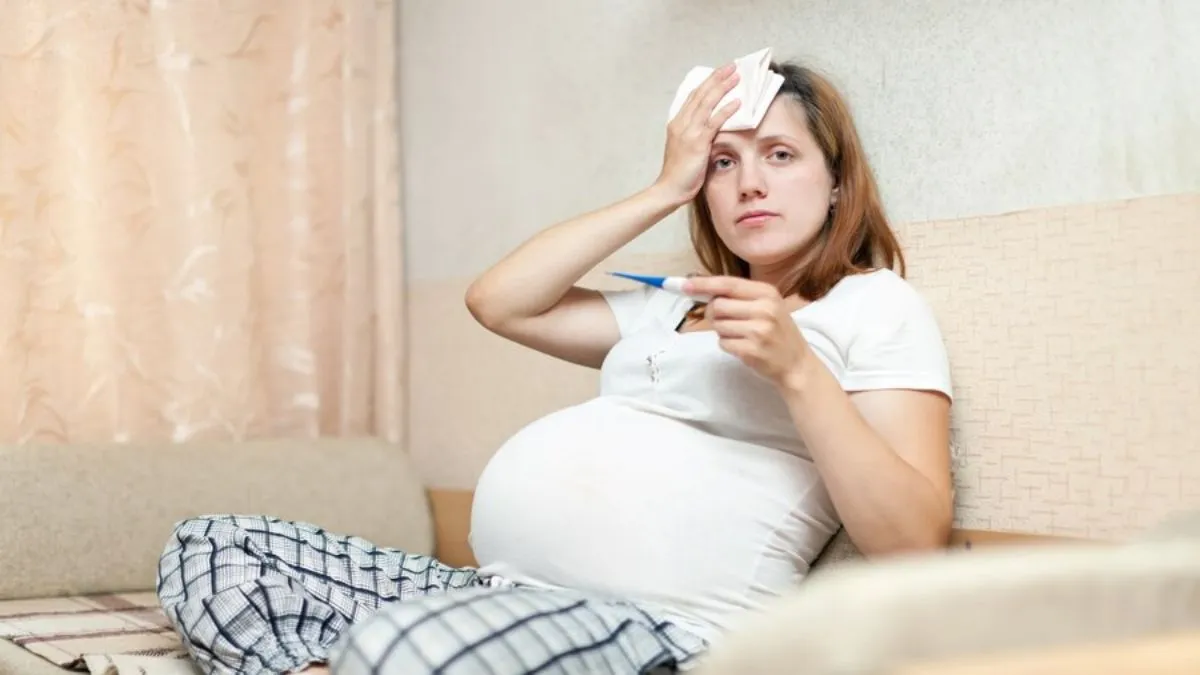Dengue can pose a serious threat to both the mother and the fetus, so taking precautions against it is very important for expectant mothers. Mosquito-borne dengue fever can have serious side effects, such as hemorrhagic fever. Due to alterations in their immune systems and the possibility of vertical transmission to the fetus, pregnant women are particularly susceptible.
The risk of illness can be considerably decreased by taking simple steps like applying insect repellent, wearing protective clothing, and getting rid of mosquito breeding areas near the house. If you have symptoms like a fever, a severe headache, or body pains, you should see a doctor right away, as early detection and treatment can help avoid complications. Pregnant women can protect their health and the health of their unborn child by making these precautions a priority. In a conversation with Jagran English, Dr. M. Rajini, a consultant gynecologist at CARE Hospital in Banjara Hills, Hyderabad, talked about navigating risks and care for expectant mothers in dengue.
According to Dr. M. Rajini, dengue fever, a viral infection borne by mosquitoes, is a global health threat and is especially hazardous in certain regions of the world, such as parts of Australia and Asia. For pregnant mothers, the risks of dengue are increased, requiring intensive care and preventive measures. The article highlights the impact of dengue on pregnancy and related risks, as well as the preventive measures and medical care for expectant mothers. The dengue virus, which causes dengue, is carried by Aedes aegypti mosquitoes. The resulting infection can cause flu-like symptoms and severe symptoms such as dengue hemorrhagic fever and dengue shock syndrome. Fever, rashes, slight bleeding, joint and muscle pain, and severe headaches are common symptoms of dengue.
Pregnant women are prone to dengue as their bodies undergo various changes. There are multiple complications caused by this infection, such as an increased risk of brain hemorrhage, high blood pressure, and organ dysfunction. Dengue can negatively impact the fetus, leading to complications such as premature delivery, below-normal birth weight, and, in extreme cases, fetal demise. Furthermore, mother-to-child transmission of the disease might happen, possibly resulting in dengue fever in neonates.

Early detection and treatment can prevent complications, ensuring the health of both mother and unborn child.(Image Credit:Freepik)
In addition, she added, due to its complex and overlapping symptoms, it can be difficult to accurately diagnose dengue among pregnant females. Therefore, it is advisable to watch out for certain important symptoms, such as high fever, joint pain, muscle aches, skin irritation, and proneness to bleeding. As there is no definitive antiviral treatment available for dengue, the focus is primarily on preventive care to reduce symptoms and curtail any complications. These preventive measures include ensuring optimal fluid intake to keep the patient hydrated, managing blood volume, taking medications to reduce fever and pain, consistently inspecting the patient’s vital signs and blood count, and monitoring fetal health.
Additionally, everyday preventive measures such as using mosquito repellents, clearing up mosquito breeding sites, using mosquito nets, and wearing protective clothing can protect individuals from dengue. It is essential to inform and educate individuals about dengue prevention and care. During prenatal checkups, pregnant women should be informed about the dangers of dengue and preventive measures. In regions where dengue is endemic, medical professionals should exercise caution and offer quick testing and supportive care if dengue is suspected.
Also Read: 5 Astonishing Advantages Of Eating Summer Fruit Falsa
Finally, Dr. M. Rajini emphasized that to efficiently handle dengue during pregnancy, it is imperative to be aware of the symptoms, receive an early diagnosis, and administer the necessary supportive care. Preventive measures are important to protect pregnant women from this potentially dangerous virus. These include awareness drives, educating people, and regular mosquito control.

